During his official visit to South Korea, on the afternoon of July 3, Prime Minister Pham Minh Chinh visited and delivered a policy speech with many important messages at Seoul National University, South Korea - the most prestigious university in the land of Kim Chi.
Accordingly, the Prime Minister congratulated generations of leaders and students of the school for their particularly important contributions, creating high-quality human resources, advanced science and technology, the foundation of Korea's miraculous economic development over the past decades; the cradle of training many outstanding leaders of the Korean Government and businesses, with the qualities of the school's alumni: Vision, ideals, passion, enthusiasm and intelligence.
According to the Prime Minister, in the era of explosive development of science and technology and the Fourth Industrial Revolution, education and training, especially at the undergraduate and postgraduate levels, are becoming increasingly important, playing a key role and having a decisive significance for the development of each country and nation. Seoul National University carries a glorious mission, which is of great significance to Korea.
Referring to the Korean saying “Education is a hundred-year strategy”, the Prime Minister said that Vietnam also pays special attention to education and training, clearly identifying it as a top national policy, with a long-term strategic nature to improve people’s knowledge, train human resources, and nurture talents. Beloved President Ho Chi Minh, the national hero and world cultural celebrity of Vietnam, advised: “For the benefit of ten years, we must plant trees, for the benefit of a hundred years, we must cultivate people”. This is also a similarity, showing that both countries attach great importance to education and training.
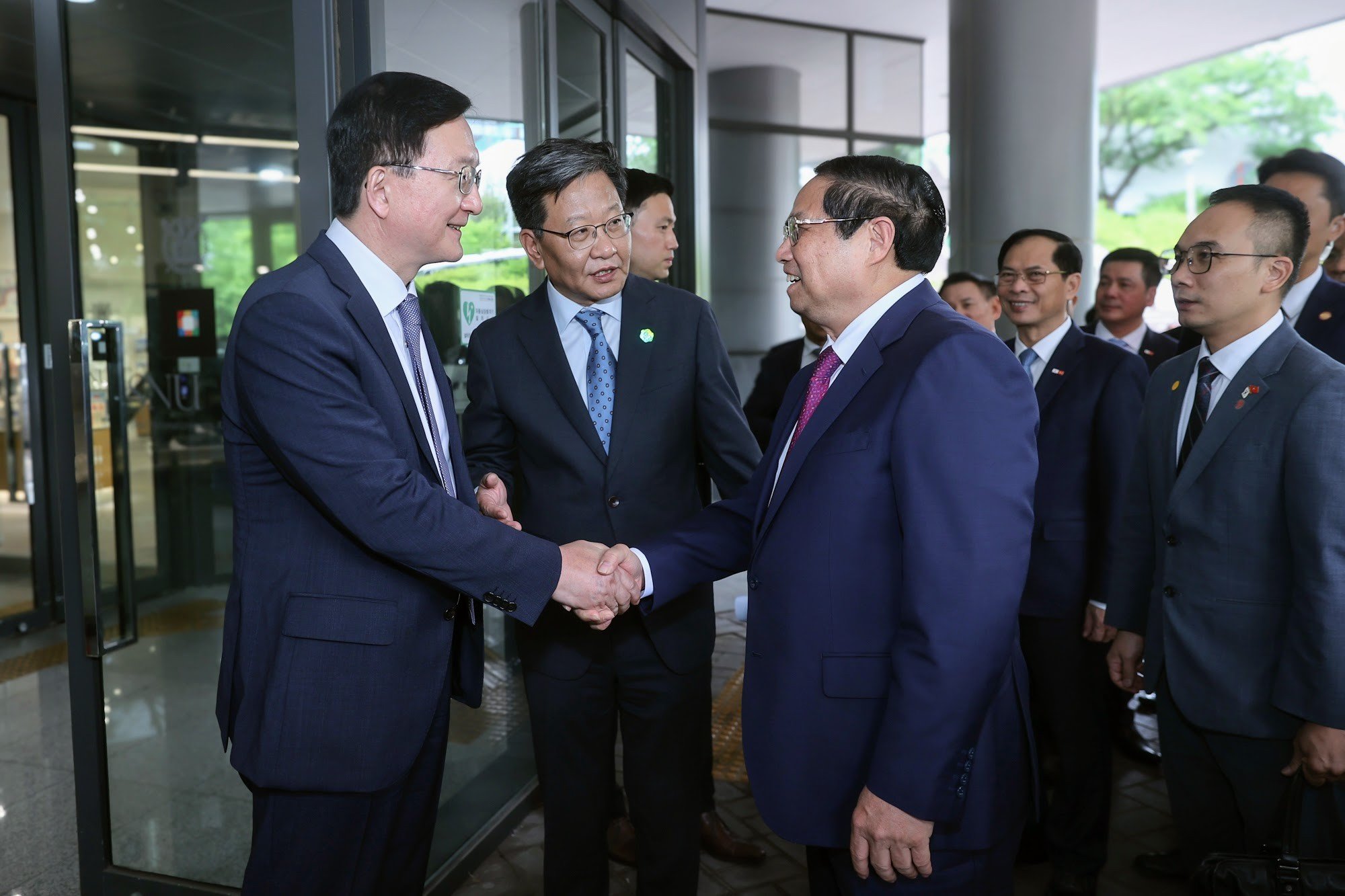
Professor Ryu Hong Lim – Director of Seoul National University welcomed Prime Minister Pham Minh Chinh (Photo: VGP).
Sharing his views on the position and role of Korea in the region and the world, the Prime Minister said that from a low starting point as a poor and backward country, Korea has miraculously risen strongly, becoming a "developed country" - a "global key country", making increasingly positive contributions to regional and global issues, and being highly appreciated and respected by the international community.
Korea plays an increasingly pivotal role in research, development, application of science and technology, and innovation. Korea has a rapidly developing entertainment and cultural industry, contributing to economic growth and spreading Korean cultural values globally.
Korea has a rich culture and history and is a leading tourist destination in the region and the world. Korea has a thriving business community with potential, prestige, position and international influence. In particular, Koreans are highly disciplined, flexible, creative and have a strong will to succeed.
“With its strong rise and achievements from the middle of the last century until now, Korea has continued to create new miracles, continuing the “miracle of the Han River”, establishing a solid position and becoming an indispensable part of the global economy. The world today and the future will be associated with creative and successful Korean enterprises known worldwide such as Samsung, LG, Lotte, SK, Hyundai…”, said the Prime Minister.
The Prime Minister spent most of his time sharing his thoughts on three main topics: (1) The world and regional situation; (2) Vietnam's policies, guidelines, foundations, achievements and development orientations; (3) Vision of the Vietnam-Korea Comprehensive Strategic Partnership in the coming time.
5 outstanding features of the era
According to the Prime Minister, the world and regional situation is evolving rapidly, complicatedly, unpredictably and is undergoing unprecedented fluctuations.
Today's world is generally peaceful, but there is war in some areas; generally peaceful, but there is tension in some areas; generally stable, but there is conflict in some areas. Among them, there are six major pairs of contradictions: (1) Between war and peace; (2) between competition and cooperation; (3) between openness, integration and independence and autonomy; (4) between solidarity, connection and separation and demarcation; (5) between development and backwardness; (6) between autonomy and dependence.
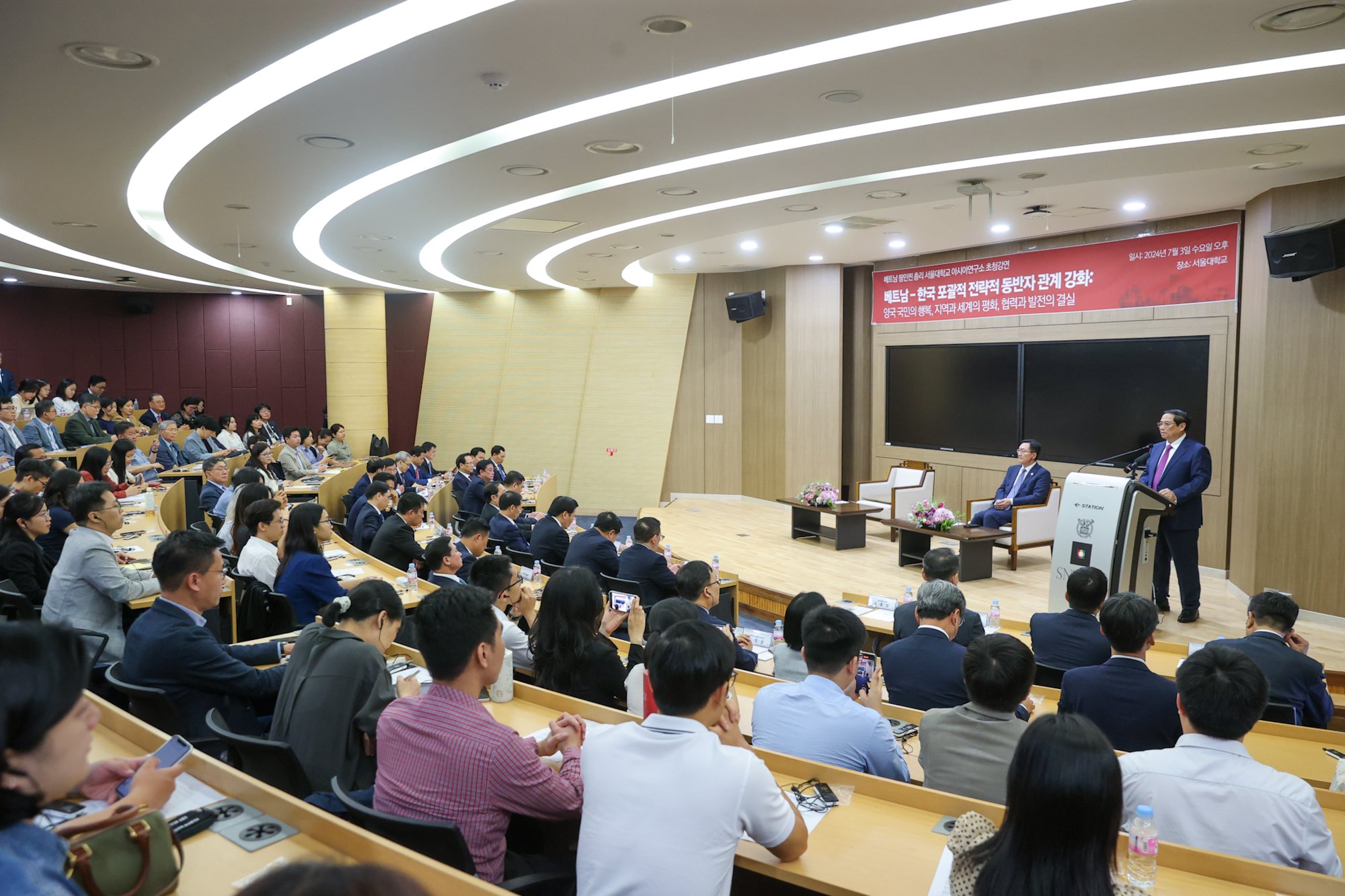
Prime Minister Pham Minh Chinh speaks at Seoul National University, South Korea (Photo: VGP).
The future of the world is being strongly impacted and influenced by three key factors and shaped and led by three pioneering fields.
The three factors of impact and influence are: (1) The explosive development of science and technology, innovation, especially digitalization and artificial intelligence (AI); (2) The severe impact and influence of climate change, natural disasters, resource depletion, and population aging; (3) The increasingly clear separation and polarization under the strong impact of conflicts, wars, geostrategic, geopolitical, and geoeconomic competition on a global scale.
Among them, population aging and resource depletion are very urgent issues, requiring countries to have a comprehensive strategy with systematic, effective and sustainable solutions. Korea and a number of countries have been gradually having solutions to successfully handle and adapt to these important and urgent issues.
The three areas shaping, leading and pioneering are: (1) Developing digital economy, green economy, circular economy; (2) innovation and the Fourth Industrial Revolution; (3) Developing high-quality human resources and artificial intelligence (AI).
The Prime Minister also assessed that today's world economy has opportunities, advantages and many intertwined difficulties and challenges; of which five outstanding characteristics can be summarized:
– The world economy is undergoing an unprecedented, profound and comprehensive transformation due to the strong development of science and technology, innovation, and the Fourth Industrial Revolution.
– Sustainable, inclusive development and green growth are more urgent than ever for all countries.
– The trend of “polarization in globalization” opens up opportunities for cooperation and economic linkage, but also contains many potential risks, the risk of disruption of supply chains, production chains, and increasingly fierce competition. Therefore, diversifying markets, products, production chains, and supply chains is a suitable and effective solution.
– The role and voice of developing countries are increasingly valued, contributing more proactively and positively to shaping new cooperation frameworks and development trends globally.
– Asia-Pacific-Indian Ocean and ASEAN are increasingly asserting their role as a driving force, a center of dynamic development and one of the locomotives leading the world to “New growth horizons” and “New development horizons” (as mentioned at the WEF Dalian Forum, China).
The Prime Minister raised the question, the above situation poses opportunities and challenges for all countries, but why are some countries successful in adapting, while others are not?
The Prime Minister said that the success stories of countries, including Korea, show that in order to respond to the above-mentioned global challenges, there needs to be a new mindset, methodology, and approach that is global, all-people, comprehensive, inclusive, and win-win, for the overall immediate and long-term benefits of humanity.
To move towards “New Growth Horizons”, in addition to maximizing endogenous factors, it is necessary to promote dialogue, promote the spirit of solidarity, unity, cooperation and development, jointly build and strengthen trust, effectively resolve regional, global and national issues based on the law and ensure harmony of interests among stakeholders; not politicize economic relations and discriminate against science, technology and innovation which are limitless.
“To adapt to today's volatile world, all of us, from government leaders, businesses, citizens and scientists, need to maximize qualities such as sincerity, openness, perseverance, flexibility and creativity,” said the Head of the Vietnamese Government.
Vietnam's foundation and development orientation
Regarding the fundamental factors and development viewpoints of Vietnam, the Prime Minister said that after nearly 40 years of Doi Moi, the Communist Party of Vietnam has basically formed a theoretical system on the renovation path, on socialism and the path to socialism in the specific historical conditions of Vietnam; demonstrated through the Party's Resolutions at the Congresses, the Central Resolutions and has been generalized and systematized in the major theoretical works and projects of General Secretary Nguyen Phu Trong.
The achievements in practice have affirmed the correctness of Vietnam's policies and viewpoints based on three pillars: (1) Building socialist democracy; (2) building a socialist rule-of-law state; (3) developing a socialist-oriented market economy.
Pervasive principled viewpoint: Maintaining political stability; taking people as the center, subject, goal, driving force and most important resource of development; not sacrificing progress, social justice, social security and the environment to pursue mere economic growth.
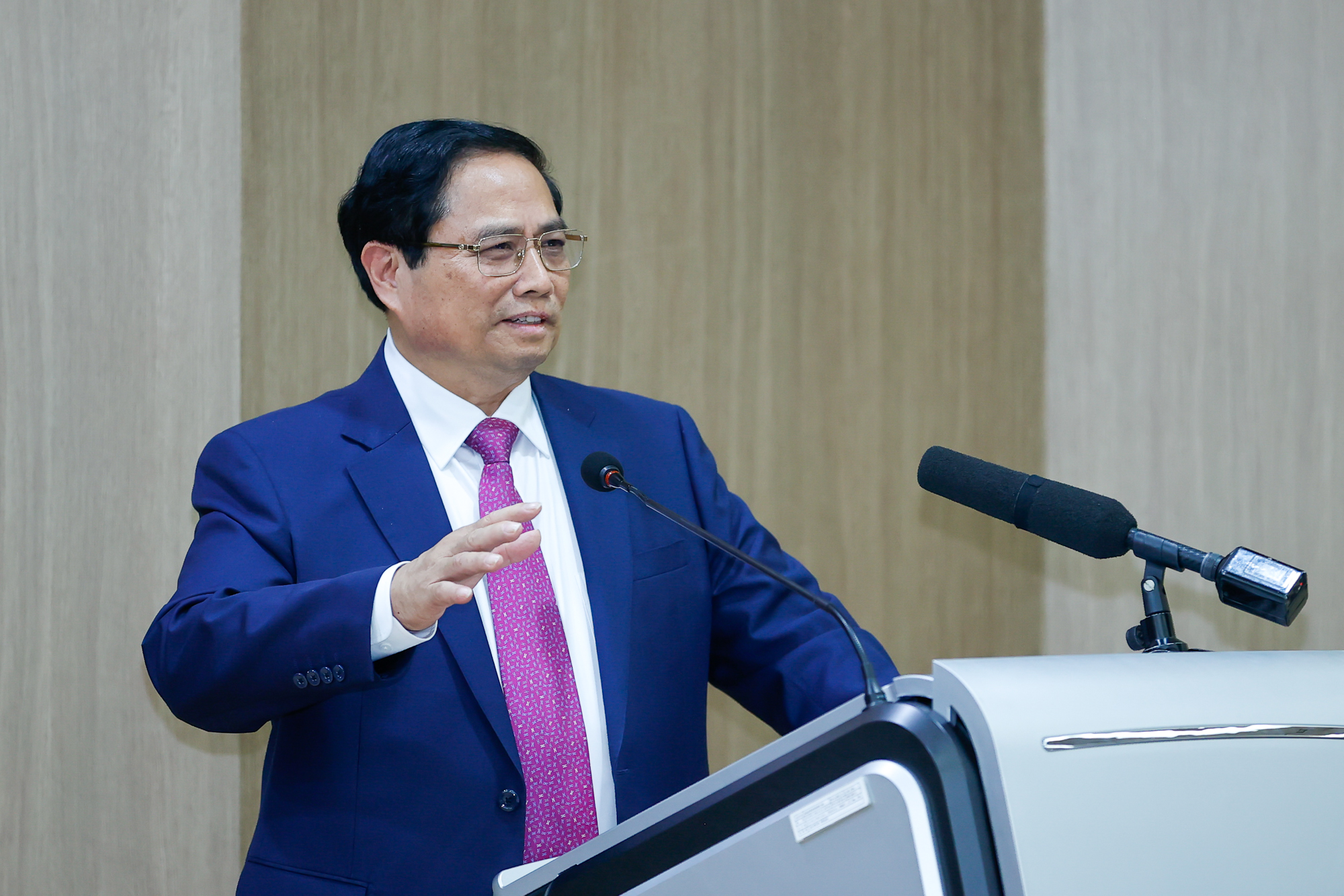
Prime Minister Pham Minh Chinh speaks at Seoul National University, South Korea (Photo: VGP).
On that basis, Vietnam implements 6 key policies:
(1) An independent, self-reliant, multilateral, and diversified foreign policy; being a friend, a reliable partner, and a responsible member of the international community for the goal of peace, cooperation, and development in the region and the world; implementing a foreign policy imbued with the identity of "Bamboo Diplomacy" - strong roots, sturdy trunk, and flexible branches.
(2) Ensuring national defense and security is an important and regular task; building a national defense foundation, building a people's security posture associated with a solid people's heart posture; implementing the "4 no's" defense policy.
(3) Economic development is the central task; building an independent, self-reliant, and self-reliant economy associated with proactive, active, and deep international integration, substantively and effectively. Implementing three strategic breakthroughs: (1) Perfecting institutions, especially market economic institutions; (2) Developing a strategic infrastructure system, including hard and soft infrastructure; (3) Training and developing human resources, especially high-quality human resources.
(4) Ensure progress, social justice, social security, do not sacrifice the environment to pursue economic growth alone; "leave no one behind"; improve the spiritual and material life of the people - all for the happiness and prosperity of the people.
(5) Cultural development is the spiritual foundation of society; building an advanced culture with strong national identity; culture is an endogenous strength; "culture lights the way for the nation", "when culture exists, the nation exists, when culture is lost, the nation is lost", and culture has national, scientific and popular characteristics; internationalizing Vietnamese cultural identity and nationalizing the quintessence of world culture.
(6) Party building is the key; in which cadre work is the key of the key; building a contingent of cadres with capacity and qualities, equal to the requirements and tasks; focusing on building a clean and strong political system, improving the leadership capacity and fighting strength of Party organizations and Party members, associated with promoting the prevention and fight against corruption, negativity, and waste, with no forbidden areas or exceptions.
The Prime Minister said that over the past nearly 40 years, Vietnam has vigorously implemented the comprehensive and synchronous Renovation process, achieving great and historic achievements . The country has never had such a foundation, potential, position and international prestige as it does today.
From a poor, backward, war-torn country, Vietnam is now a middle-income developing country; one of the 40 economies with the largest GDP in the world and the top 20 economies in terms of trade, among the top 46 countries in the world in terms of innovation index; per capita income increased from around 100 USD in the early years of innovation to about 4,300 USD today.
From a country under siege and embargo, Vietnam now has diplomatic relations with 193 countries, of which more than 30 are comprehensive partners, strategic partners and equivalent partners, including South Korea. Vietnam is also an active member of nearly 70 regional and international organizations.
Since the beginning of the 13th National Congress term, despite the difficult situation, especially due to the COVID-19 pandemic, Vietnam has maintained a fairly stable economic growth. In 2022, growth will reach over 8%; in 2023, it will reach over 5%; in the first 6 months of 2024, it will increase by 6.42% and continue a more positive trend in the second half of the year.
Macroeconomic stability is maintained, inflation is controlled at around 4%; major balances of the economy are ensured. Public debt, government debt, and state budget deficit are well controlled, much lower than the allowable limit.
Social security and people's lives continue to improve. Socio-political stability; national defense and security are consolidated and enhanced; foreign affairs and international integration are promoted, achieving many important results.
Vietnam has also taken the lead in successfully implementing many Sustainable Development Goals, especially in poverty reduction, health care, and education. With its new position and strength, Vietnam has increasingly proactively contributed to common global concerns, including efforts to maintain peace, international security, disaster relief, and humanitarian assistance. Vietnam is also strongly committed to energy transition, aiming to achieve net zero emissions by 2050.
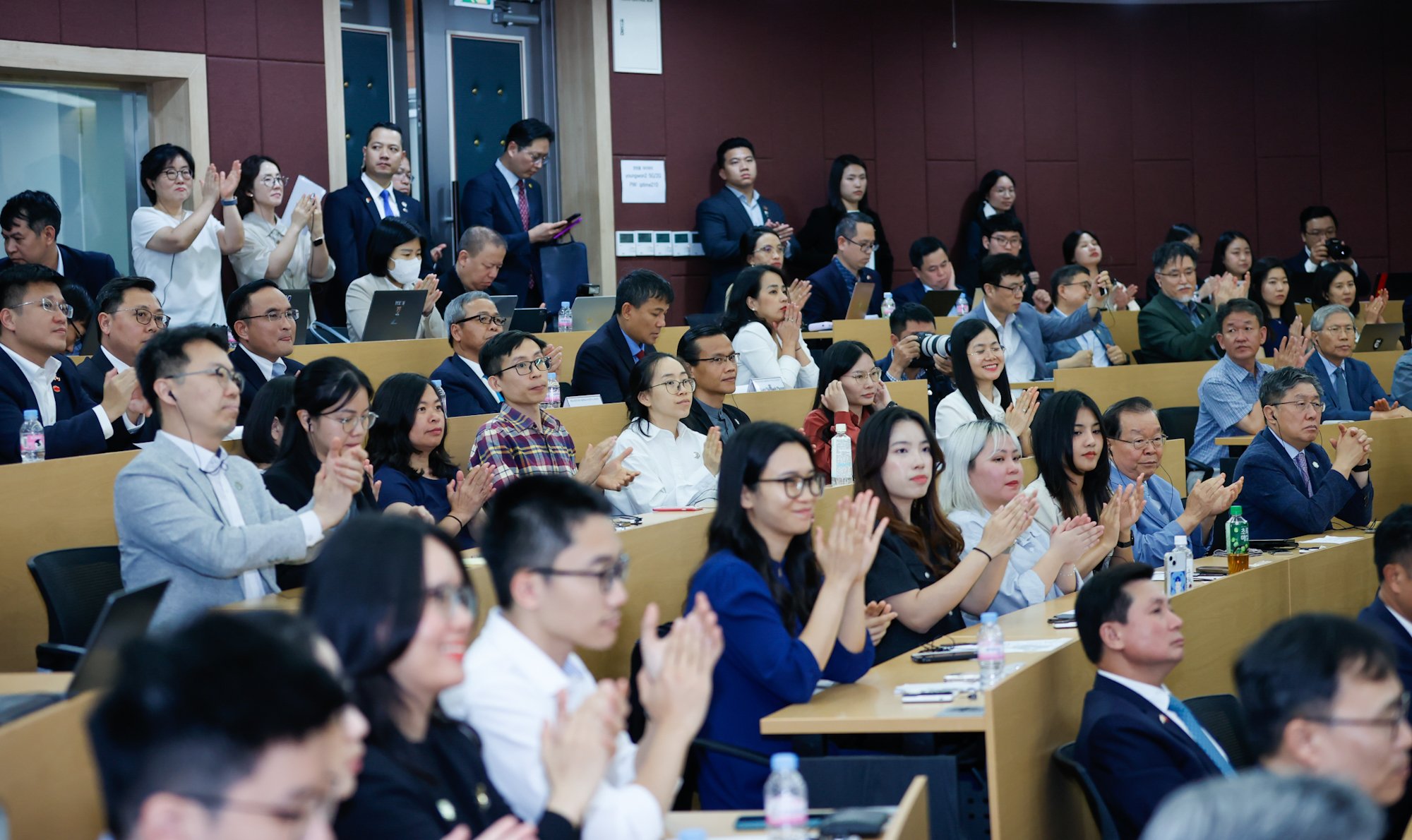
A large number of students from Seoul National University, South Korea, followed the Prime Minister's speech (Photo: VGP).
The Prime Minister said that from the historical reality of Vietnam's revolution, the renovation and integration process, five lessons were drawn: (1) Firmly uphold the flag of national independence and socialism; (2) The revolutionary cause is of the people, by the people and for the people; (3) Constantly consolidate and strengthen solidarity (unity of the whole Party, unity of the whole people, national solidarity, international solidarity); (4) Combine national strength with the strength of the times, domestic strength with international strength; (5) The correct leadership of the Party is the leading factor deciding the victory of the Vietnamese revolution.
At the same time, from Vietnam's Innovation practice, it can be concluded: "Resources originate from thinking; motivation originates from innovation; strength originates from people and businesses".
The Prime Minister said that in the coming time, the world and regional situation is forecast to continue to change rapidly, complexly and unpredictably. Vietnam also faces many difficulties and challenges because it is a developing country with a transitional economy of modest scale, high openness and limited resilience to external shocks.
Vietnam takes a rich people, a strong country, democracy, equality, and civilization as its general goal and driving force. It sets the strategic goal of becoming a developing country with modern industry and high middle income by 2030; and by 2045, becoming a developed country with high income.
Vietnam continues to clearly identify difficulties and challenges as more than opportunities and advantages, and needs to closely follow reality and have timely, flexible and effective policy responses; focusing on strongly promoting 6 key areas :
(1) Renewing traditional growth drivers (investment, consumption, export) and strongly promoting new growth drivers such as science and technology, innovation, digital transformation, green transformation, circular economy, sharing economy, emerging industries and fields (such as artificial intelligence, semiconductor chips, etc.).
(2) Maintain macroeconomic stability, control inflation, promote growth, and ensure major economic balances.
(3) Promote industrialization and modernization, create substantial changes in strategic breakthroughs, and restructure the economy.
(4) Mobilize and effectively use all resources, harmoniously combining internal and external resources.
(5) Focus on ensuring social security, environmental protection, and responding to climate change.
(6) Strengthening and enhancing national defense and security, promoting foreign affairs and international integration, creating a peaceful and stable environment and favorable conditions for national development.
Vietnam-Korea relations are a model
Regarding the major achievements in the Vietnam-Korea relationship, the Prime Minister said that over the past three decades, overcoming the differences and barriers that had hindered the relationship between the two countries in the past, the bilateral relationship has continuously developed, becoming a model for good relations between the two East Asian countries with an unprecedented level of successful cooperation.
“Our two countries are not only friends, close and trustworthy partners, but also have many similarities in cultural and ethnic traditions, especially the strong “in-law” relationship that has lasted for many generations. Historically, Vietnam and Korea have had a close relationship for many centuries (The two Vietnamese Ly families settled in Korea in the 12th and 13th centuries and made important contributions to the construction and protection of Korea),” the Prime Minister shared.
The Prime Minister assessed that Vietnam and Korea have five major similarities , which are: (1) Similarities in history, with cultural exchanges dating back more than 800 years; (2) Similarities in the aspiration to develop the country through integration and openness; (3) Similarities in the way of thinking, making it easy to empathize; (4) Similarities in people-to-people exchanges with increasingly close in-law relationships; (5) Similarities in the aspiration to contribute to peace, stability, cooperation and development in the region and the world.
After more than 30 years, especially since the two countries established the Strategic Partnership (2009) and Comprehensive Strategic Partnership (2022), the cooperative relationship between Vietnam and Korea has made remarkable progress, demonstrated through 8 points : (1) Higher political trust; (2) More prosperous trade cooperation; (3) Korean investment in Vietnam has increased more strongly; (4) More expanded labor cooperation; (5) Stronger recovery in tourism cooperation; (6) More cohesive and substantive cooperation between localities; (7) More progress in science and technology cooperation and climate change response; (8) Closer cooperation in regional and international issues.
In terms of politics and diplomacy, political trust between the two countries has been constantly consolidated and increasingly close; high-level delegation exchanges at all levels take place regularly; bilateral exchange and cooperation mechanisms have been continuously expanded and become more effective. Defense and security cooperation has become increasingly substantive.
Economic, trade and investment cooperation is increasingly deep and effective. Korea continues to be the number 1 partner in direct investment and tourism, number 2 in development cooperation (ODA), number 3 in labor and trade of Vietnam. Meanwhile, Vietnam is the leading trade partner of Korea in ASEAN. In particular, the two economies and businesses of the two countries have increasingly deep and effective connections. Many Korean businesses consider Vietnam an attractive and safe investment destination, a top choice, making practical contributions to the development of Vietnam as well as Korea.
Labor cooperation is expanding, currently there are nearly 70,000 Vietnamese workers in Korea and is on the rise, in which the labor quota increases by 13% compared to 2023.
Cooperation in culture, tourism, people-to-people exchange and social foundation is growing stronger and stronger. Cultural proximity and historical similarities have brought the people of the two countries closer and closer together. Nowadays, Vietnamese youth are fans of Korean movies and K-pop, and Vietnamese people love to eat kimchi. It has become a daily habit for Korean people to go to Vietnamese restaurants in Korea to enjoy pho. About 70 pairs of localities of the two countries have signed cooperative relations. About 80,000 multicultural families are an important and sustainable bridge for the two countries.
South Korea has consistently been the largest source of tourists to Vietnam. In 2023, the number of South Korean tourists to Vietnam reached 3.6 million, and in the first 6 months of 2024, it reached 2.3 million, an increase of over 42%.
In particular, cooperation in science and technology, innovation and education and training is increasingly deep, substantial and effective. Samsung Group inaugurated the largest research and development center in Southeast Asia in Hanoi in December 2023. The two countries completed phase 1 of the Vietnam - Korea Institute of Science and Technology (VKIST) project in January 2023.
Korean studies at Vietnamese universities and Vietnamese language departments in Korea have attracted an increasing number of students from both countries in recent years. Korean scholarship funds always give priority to Vietnam.
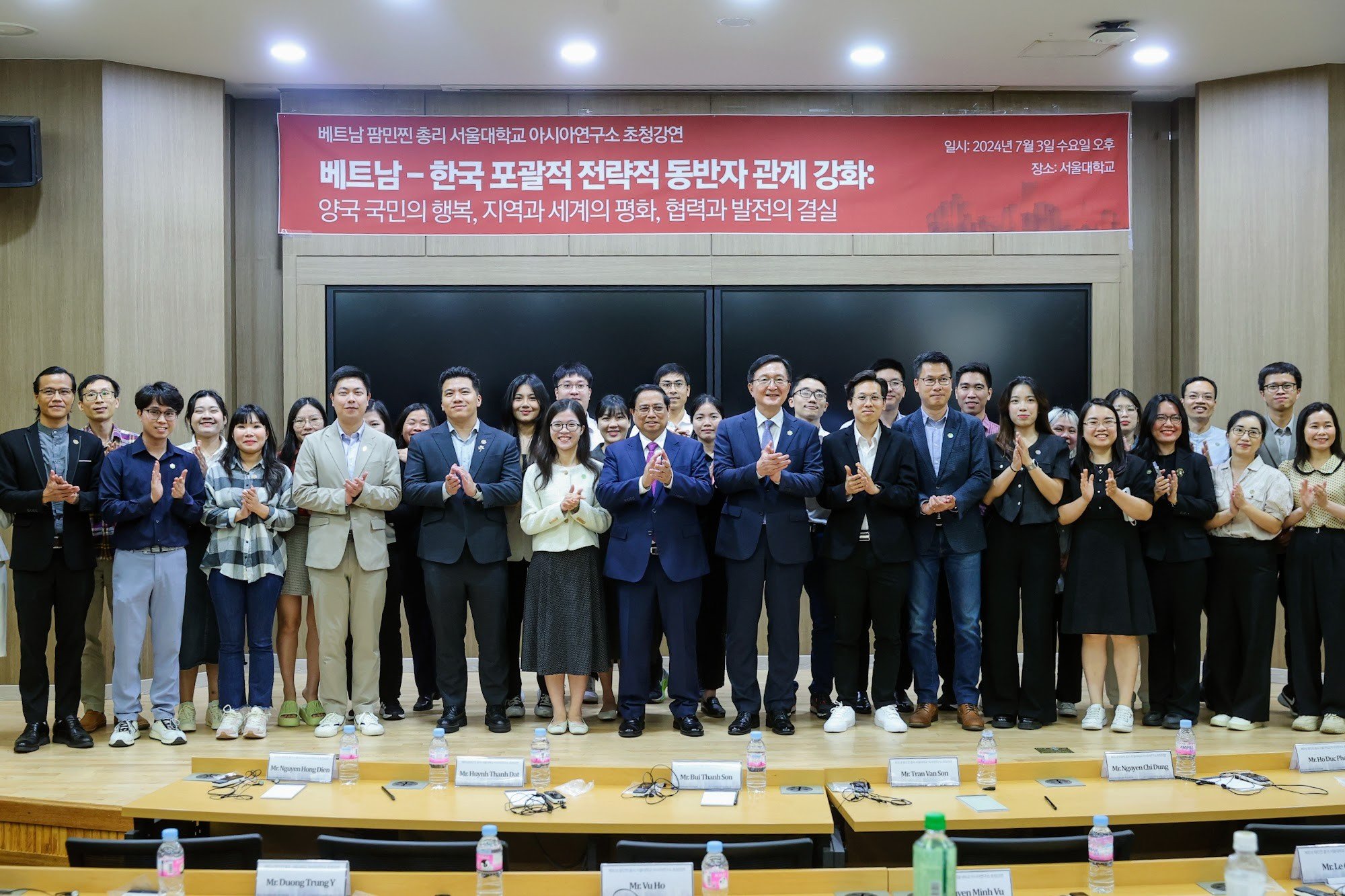
The Prime Minister took a souvenir photo when visiting Seoul National University, Korea (Photo: VGP).
On this occasion, the Prime Minister highly appreciated the cooperation and association program between Seoul National University and Ho Chi Minh City National University, Hanoi National University, and their effective participation in the Forum of Four Key East Asian Universities (the other two national universities are from China and Japan).
On this occasion, the Prime Minister once again affirmed that in its foreign policy, Vietnam consistently attaches importance to its relations with the Republic of Korea and wishes to continue to develop bilateral cooperation in a practical, effective and sustainable manner, commensurate with the framework of the Comprehensive Strategic Partnership. “Your success is also our success,” said the Prime Minister.
Vision of “5 priorities” in Vietnam – Korea relations
Looking ahead, the Prime Minister said that on the basis of the proud achievements in bilateral relations that the people of the two countries have worked hard to cultivate, it is necessary to continue to further develop the bilateral relationship with new approaches, new thinking and new orientations; focusing on promoting 5 "priorities":
Firstly, prioritize strengthening the foundation of the relationship, which is mutual understanding and increasing political trust through regular exchanges of high-level delegations and all levels. Effectively implement high-level commitments and agreements, including the Action Program to implement the Vietnam-Korea Comprehensive Strategic Partnership, promptly discuss to remove arising obstacles and difficulties. Strengthen cooperation in diplomacy, defense and security.
Second, prioritize strengthening cooperation in key areas, including economics, trade, investment and labor in an increasingly practical, effective, balanced and sustainable manner. Strive to reach a trade turnover of 100 billion USD by 2025 and 150 billion USD by 2030. Encourage Korean enterprises to increase investment in the fields of semiconductors, digital transformation, green transformation, and biotechnology. Strengthen development cooperation (ODA), especially large-scale projects with special preferential conditions, and implement projects that symbolize the relationship between the two countries.
Third, prioritize creating breakthroughs in cultural cooperation, tourism and people-to-people exchange; enhance the promotion and promotion of bilateral tourism; create conditions for people of the two countries, especially the young generation, to understand more deeply about each other's culture, country and people. Vietnam hopes that Korea will share its very successful experience in developing the entertainment industry, cultural industry and content industry. At the same time, closely cooperate to protect the legitimate rights of citizens of each country; help the community stabilize their lives and integrate well into the local community.
Fourth, prioritize further promoting cooperation in education and training, science and technology, and climate change response.
Trong đó, tập trung hợp tác đào tạo nguồn nhân lực chất lượng cao, trong đó có các ngành công nghệ cao như công nghệ chíp bán dẫn, trí tuệ nhân tạo. Tăng cường hợp tác đào tạo, trao đổi sinh viên lẫn nhau giữa hai Đại học quốc gia, nhất là hợp tác đào tạo về bán dẫn, y tế, sản xuất vaccine, công nghệ sinh học. Tiếp tục mở rộng các chương trình dạy tiếng Hàn và tiếng Việt; phấn đấu để tiếng Hàn và tiếng Việt ngày càng phổ dụng ở mỗi nước.
Ưu tiên chuyển giao khoa học công nghệ, hợp tác ứng phó biến đổi khí hậu. Hàn Quốc xem Việt Nam là điểm đến chiến lược cho xây dựng các Trung tâm nghiên cứu và phát triển; khuyến khích chuyển giao công nghệ lõi, công nghệ nguồn. Hỗ trợ Việt Nam tổ chức thành công Hội nghị Thượng đỉnh Đối tác vì tăng trưởng xanh và Mục tiêu toàn cầu 2030 (P4G) vào tháng 4/2025.
Thứ năm, ưu tiên hợp tác chặt chẽ và ủng hộ lẫn nhau trong các cơ chế, diễn đàn đa phương tại Liên Hợp Quốc, các khuôn khổ ASEAN – Hàn Quốc, Mekong-Hàn Quốc: Nhằm đề cao thượng tôn pháp luật quốc tế, giải quyết hoà bình các tranh chấp, ứng phó hiệu quả với các thách thức toàn cầu. Tiếp tục ủng hộ và chia sẻ tầm nhìn chung về bảo đảm an ninh, an toàn, tự do hàng hải và hàng không ở Biển Đông, trên cơ sở luật pháp quốc tế, trong đó có Công ước của Liên Hợp Quốc về Luật Biển 1982. Đồng thời, Việt Nam ủng hộ phi hạt nhân hoá, duy trì hòa bình và ổn định, hợp tác và phát triển trên Bản đảo Triều Tiên.
Để hiện thực hóa tầm nhìn phát triển của quan hệ hai nước với các ưu tiên đó, nhấn mạnh thêm về vai trò của thế hệ trẻ và sinh viên hai nước, Thủ tướng cho rằng thế hệ trẻ, sinh viên là chủ nhân của tương lai, là lực lượng tiên phong trong phát triển và xây dựng đất nước.
“Sinh ra và học tập trong kỷ nguyên số và toàn cầu hóa, các bạn trẻ có điều kiện và lợi thế vô cùng to lớn, bởi tuổi trẻ là đồng nghĩa với năng lượng và sáng tạo. Với tầm nhìn, tư duy và kỹ năng được đào tạo từ những cơ sở giáo dục đào tạo uy tín như Đại học Quốc gia Seoul, tôi tin tưởng chính các em sẽ là những người góp phần tạo nên thế kỷ 21 của hòa bình, hợp tác và thịnh vượng. Chỉ cần có hoài bão, ý chí mạnh mẽ, nỗ lực hết mình, hướng đi đúng đắn, các em sẽ đạt được mục tiêu, ước mơ của cuộc đời mình, cho dù có khó khăn, thử thách đến bao nhiêu”, người đứng đầu Chính phủ Việt Nam chia sẻ.
Thủ tướng mong muốn và tin tưởng rằng, cùng với những người bạn tốt Hàn Quốc, những sinh viên Việt Nam đang học tập tại đây đang rất mong muốn, khát khao dựng xây đất nước Việt Nam ngày càng đàng hoàng hơn, to đẹp hơn như Chủ tịch Hồ Chí Minh đã căn dặn; các em sẽ trở thành những nhân tố quan trọng đóng góp hữu ích trong công cuộc xây dựng đất nước ngày càng tươi đẹp và cho quan hệ Việt Nam – Hàn Quốc ngày càng phát triển rực rỡ.
Kết thúc bài phát biểu, Thủ tướng Phạm Minh Chính bày tỏ lạc quan tin tưởng quan hệ hợp tác hữu nghị Việt Nam – Hàn Quốc sẽ ngày càng đơm hoa kết trái, phát triển mạnh mẽ, hiệu quả, bền vững với tương lai tươi sáng phía trước-nhờ có những yếu tố nền tảng quan trọng của hai nước, nhất là 3 yếu tố: Quyết tâm chính trị, ý chí và tinh thần chỉ đạo quyết liệt của các nhà Lãnh đạo hai nước; sự song trùng về lợi ích và sự tương đồng về văn hoá, truyền thống giữa hai dân tộc; sự gắn kết nền tảng xã hội, sự gắn bó đặc biệt giữa nhân dân, cộng đồng doanh nghiệp hai nước.
“Với bề dày lịch sử quan hệ đã được nhân dân và Lãnh đạo hai nước dày công vun đắp, tiềm năng hợp tác giữa hai đất nước chúng ta là rất lớn. Tôi có niềm tin mãnh liệt rằng, với tinh thần quyết tâm, sức sáng tạo, nội lực và sự gắn bó chặt chẽ của cộng đồng doanh nghiệp, người dân, nhất là thế hệ trẻ hai nước, Việt Nam và Hàn Quốc sẽ phát huy những điểm tương đồng, bổ trợ, hỗ trợ cho nhau, cùng nhau vượt qua khó khăn, thách thức, cùng phát triển thịnh vượng.
Thông điệp mà Việt Nam muốn gửi đến các bạn là: Việt Nam sẵn sàng hợp tác chặt chẽ hơn nữa với Hàn Quốc, thúc đẩy quan hệ Đối tác chiến lược toàn diện đơm hoa kết trái, vì hạnh phúc của nhân dân hai nước và vì hoà bình, hợp tác và phát triển ở khu vực và trên thế giới”, Thủ tướng nhấn mạnh .








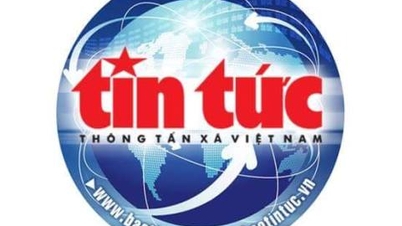

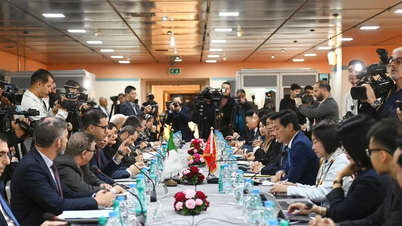




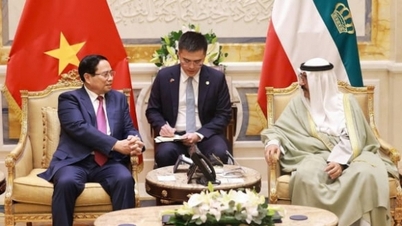

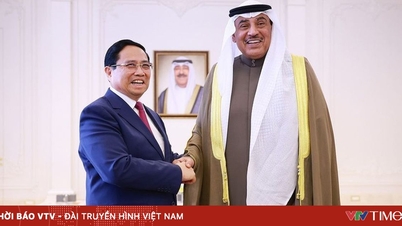



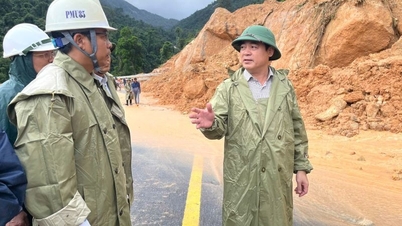

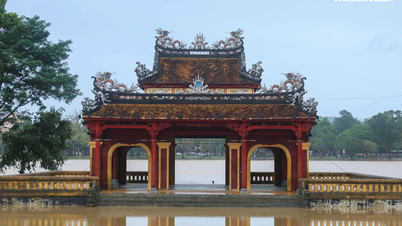

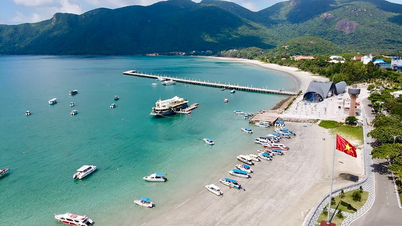

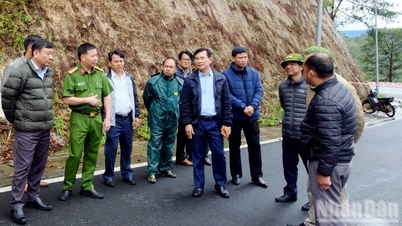





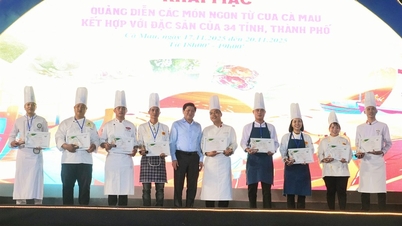

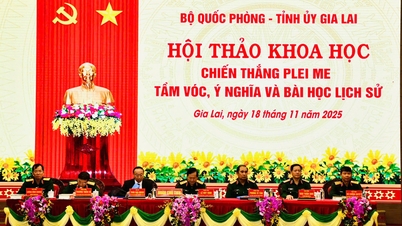




![[Photo] General Secretary To Lam and National Assembly Chairman Tran Thanh Man attend the 80th Anniversary of the Traditional Day of the Vietnamese Inspection Sector](https://vphoto.vietnam.vn/thumb/1200x675/vietnam/resource/IMAGE/2025/11/17/1763356362984_a2-bnd-7940-3561-jpg.webp)





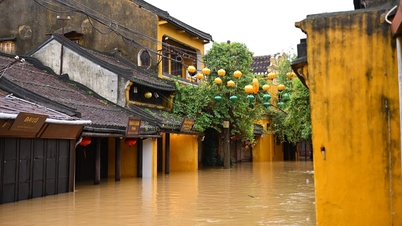

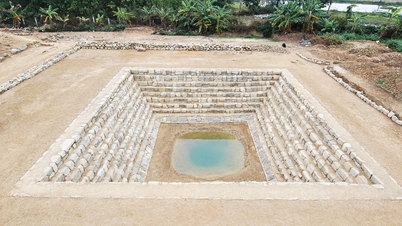

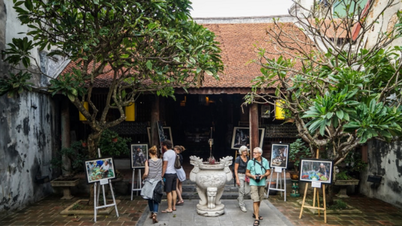









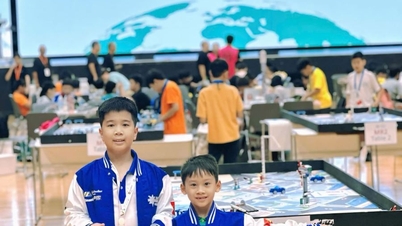




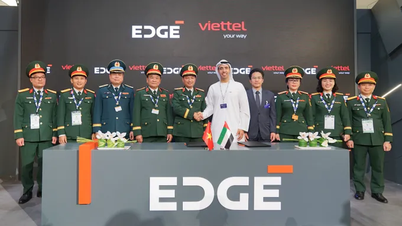

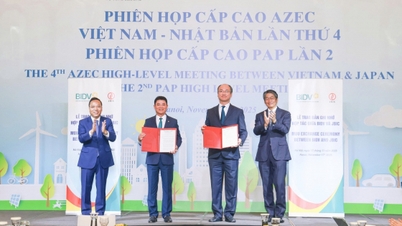




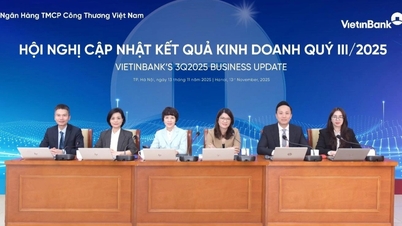










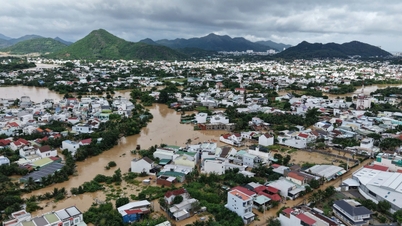


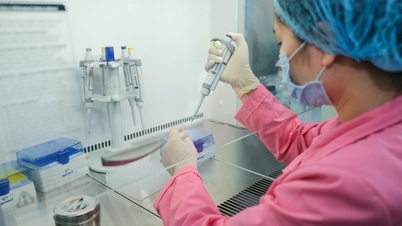

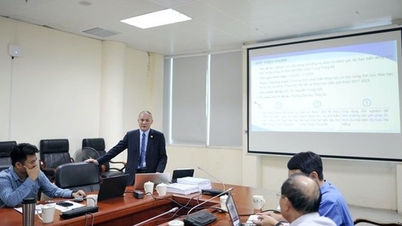


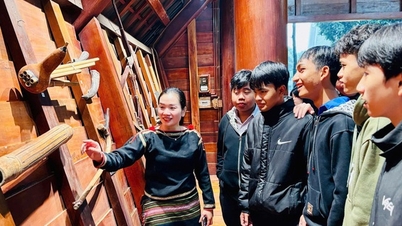

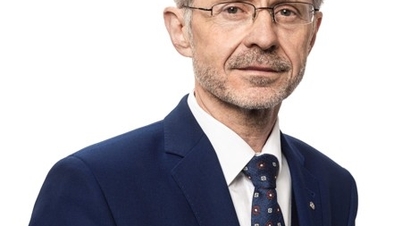
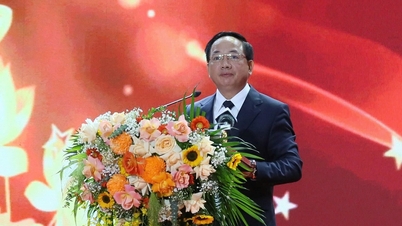



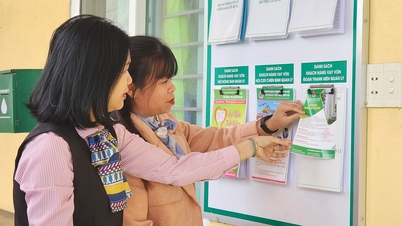
















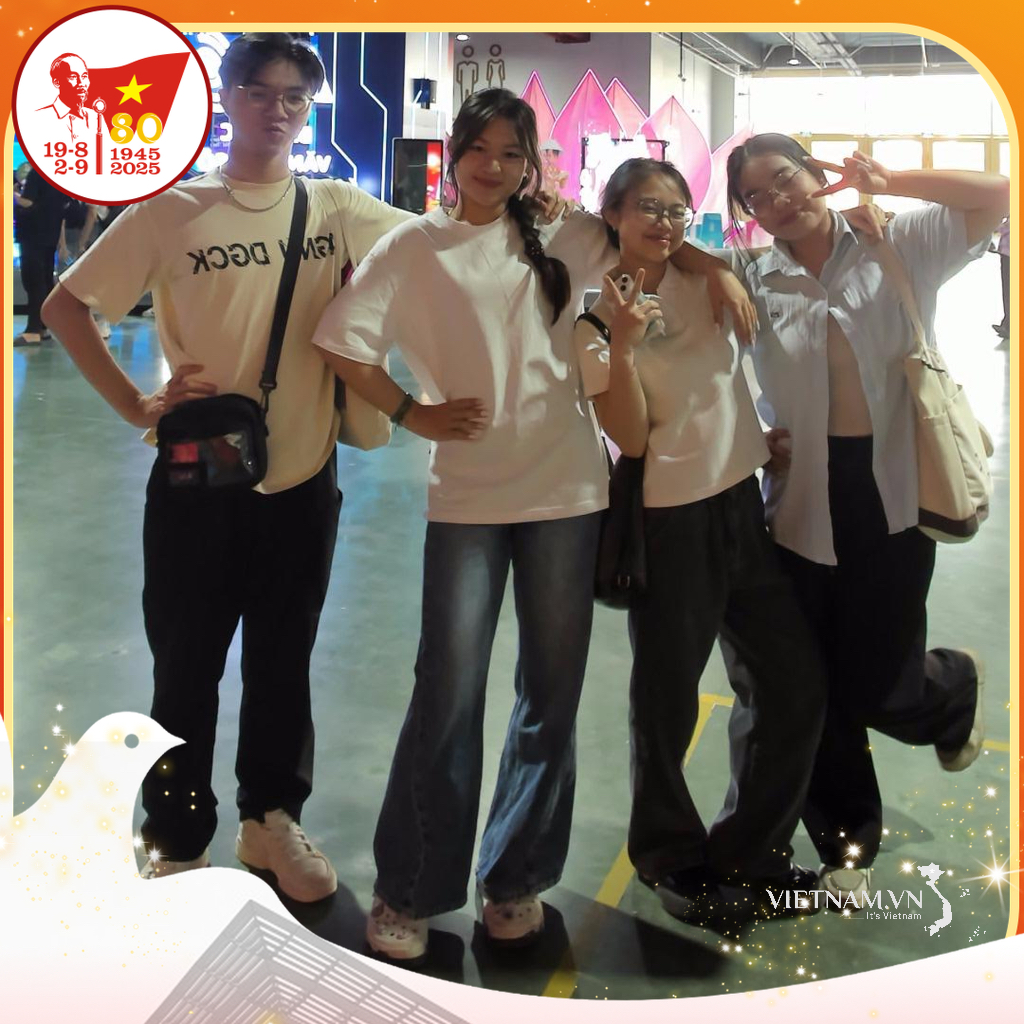


Comment (0)